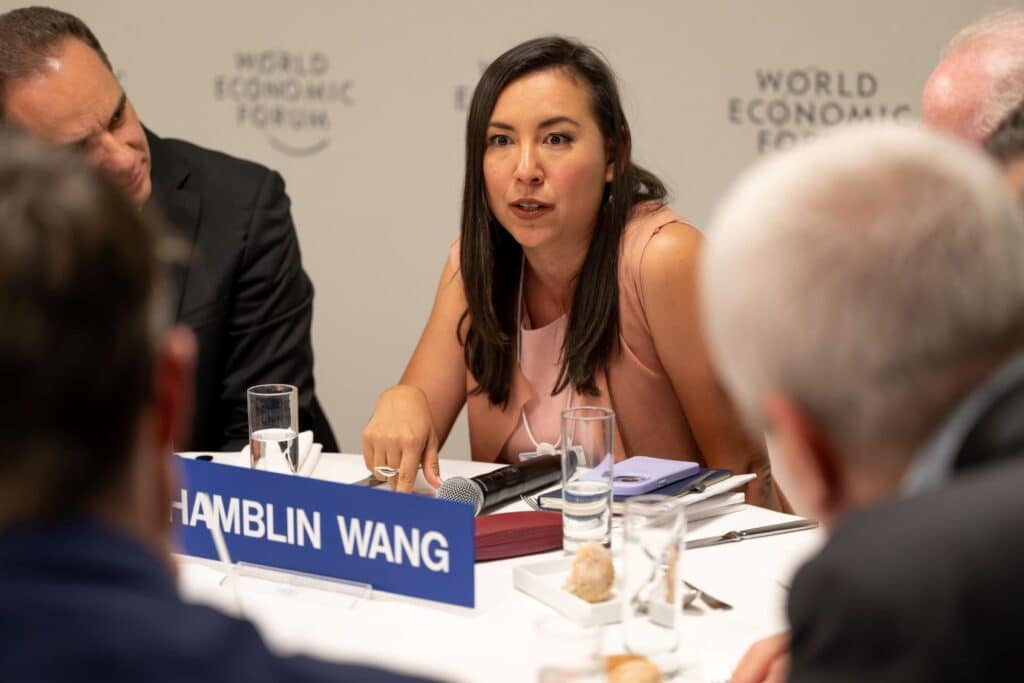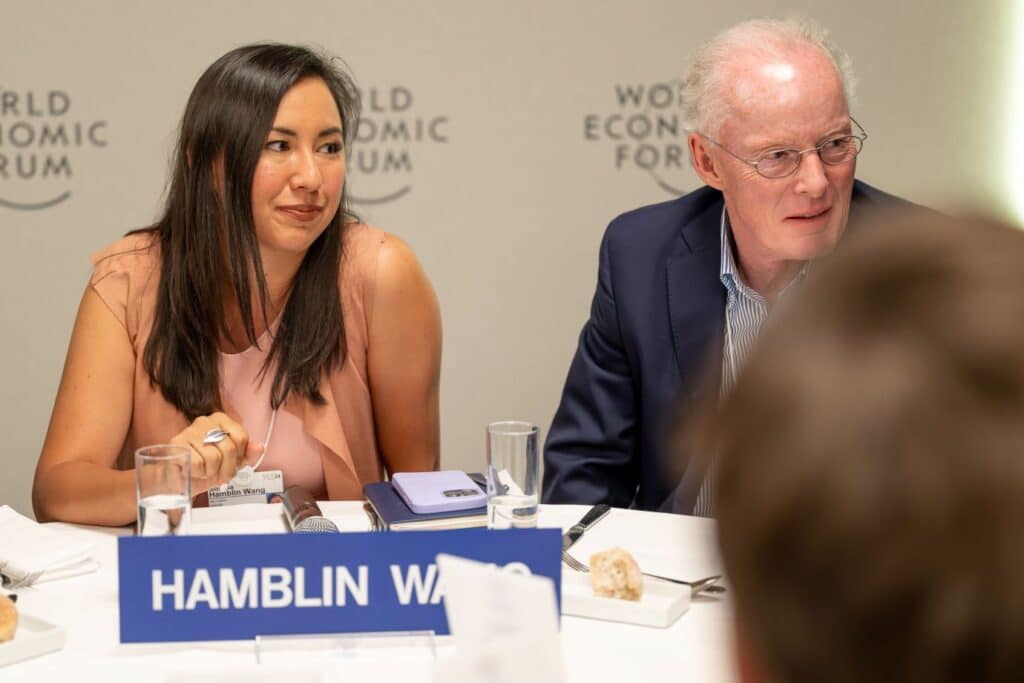Climate technologist Sophia Hamblin Wang has just returned to Australia after attending and participating in the annual meeting of the World Economic Forum in Davos, Switzerland.
Nearly 3000 people, including some of the most powerful business and political leaders in the world, gathered at the forum this year. Hamblin Wang, the Chief Operating Officer of MCi Carbon, was there on a mission to impress upon world leaders what needs to be done in this decade to reach net zero.
Speaking to Women’s Agenda upon her return to Australia, Hamblin Wang said it was a “once in a lifetime opportunity” to be in attendance at the forum.
“I’m not a world leader or a head of state or business tycoon or a spiritual leader,” Hamblin Wang said. “It’s not lost on me what a significant opportunity this was.”
“The challenge and the urgency of climate and climate technology development is extremely important right now. And I felt like my contribution was definitely important in the dialogue of the World Economic Forum Annual Meeting 2024.”
Hamblin Wang explained that she had meetings and engagement from 7am to 2am every day for the five days she was at the World Economic Forum, which was a significant opportunity to network and influence key decision-makers.
“The people who get stuff done are all there. There’s not only policymakers but also the key decision makers of the world are networking and making decisions while they’re there,” she said.
“I definitely felt like there was an opportunity to really call the world leaders to action and make them aware of what can be done and what should be done in this very, very crucial decade to reach Net Zero.”
Hamblin Wang was at the World Economic Forum in her capacity as Chief Operating Officer of MCi Carbon, a forward-thinking clean tech company transforming carbon dioxide into building materials and other valuable products for the circular economy. It’s providing a decarbonisation pathway for hard-to abate sectors including steel, cement, mining, chemicals, and manufacturing.
MCi Carbon received a $14.6 million grant from the federal government in 2021 to build a decarbonisation plant demonstrator. It’s currently being built in Kooragang Island in Newcastle and will lock away more than 1000 tonnes of carbon dioxide permanently and safely into building materials.
Debunking myths on carbon pricing
At the World Economic Forum, Hamblin Wang spoke on a panel called Debunking Myths on Carbon Pricing alongside Lord Nicholas Stern, Chair of Grantham Research Institute on Climate Change and the Environment, Maros Sefcovic, Executive Vice-President for European Green Deal and Pierre Fitzgibbon, Minister of the Economy, Innovation and Energy of Québec, Canada.
Hamblin Wang used her time to talk about three key things: intention, integrity and courage.
“For me, my life purpose is around ensuring that we keep our world at a 1.5 degree target,” she explained. “We need to remediate climate change and intention is really important in that.”
“I talked about my daughter, which I think is sometimes like a ‘no no’ in a professional setting but I was saying that when we talk about net zero by 2050, it’s kind of obscure, but the reason why we decided on net zero by 2050 was because we want to keep 1.5 degrees alive for the year 2100.
“And that although that is really far away in the future, my daughter is still going to be alive in the year 2100. It is a real time in the future and we want to still have the Great Barrier Reef then.”

Hamblin Wang said that any new technologies that are invested in need to have integrity.
“We need to be able to measure, report and validate what actions we’re taking to make sure that the technologies that we invest in and we spend our finite time and resources behind, don’t give license to companies to emit more. It’s important that they actually work and they don’t just make promises and then under deliver. The integrity behind technologies is of crucial importance,” she explained.
It’s not just that we don’t want to spend money on things that don’t work, according to Hamblin Wang, it’s also that the public needs to have trust in what the technology is doing.
“It needs to be beyond politics. We need to urgently reduce emissions and remove emissions from the atmosphere,” she said. “We need to be doing that whilst having integrity behind what we’re doing so that the public is along for the ride. At the end of the day, it’s communities that are actually going to be adopting the technologies. It’s not just companies operating in obscurity.”
Hamblin Wang also wants to see more courage from those who have the power to invest.
“There is not enough climate capital being unleashed in the world. We need to be unlocking orders of magnitude more investment into climate capital but the global investment community hasn’t quite stepped up,” she said..
“We’re almost seeing a breakthrough there but we need patient capital that’s investing in things that both have a return on investment but also an emissions reduction outcome.”
What about climate hope?
While Hamblin Wang still wants to see more investment into climate technology, she said she is filled with hope that the word will rise to the challenge that climate change presents.
“I’m definitely a strong believer in climate hope. Because we’re actually doing it right now in Australia and the technology works and the business model works.
“My true feeling is that the world will get there, and we will get climate change under control. It’s just about how late we leave it and how much it’s going to cost. If we act with the urgency that is required right now, that we know that the climate science has told us, it will be less costly and less painful.
“If we leave it too late and we dilly dally, or we don’t act with conviction, and with the investment and adoption that’s needed. It’ll be a lot more expensive and costly in many other ways.”
Feature Image credit: World Economic Forum.



